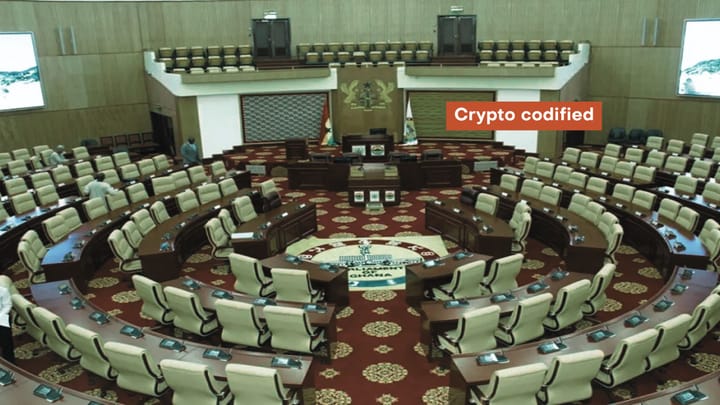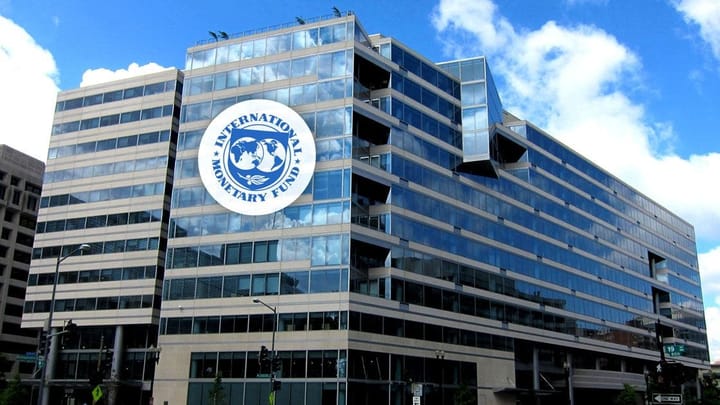Nigeria, South Africa and two other African countries exit FATF’s grey list
According the IMF, these countries have lost significant sums of money as a result of being grey listed by the FATF

The Financial Action Task Force (FATF), the global standard setter for anti-money laundering and counter-terrorism financing, has removed Burkina Faso, Mozambique, Nigeria, and South Africa from its grey list.
The decision follows the countries’ successful implementation of measures to address strategic deficiencies in their financial frameworks, bringing them in line with FATF’s international standards on financial integrity.
The details
- Announcing the development at the conclusion of a plenary session last Friday, the FATF said these four countries are no longer on its list for increased monitoring of illegal monetary flows.
- Countries on the grey list commit to working closely with FATF to resolve gaps in their financial systems that illicit actors exploit to launder money and finance terrorist acts.
- The FATF typically outlines a set of reforms in an action plan that grey-listed countries must implement to comply with global standards on financial integrity.
- According to the intergovernmental organization, the four African countries have resolved all the action points it highlighted within specified timeframes and are now deemed compliant on its anti–money laundering and counter-terrorism financing (AML/CTF) standards.
Dive deeper
Burkina Faso:
- To be removed from the list, Burkina Faso, which was added in 2021, implemented ten key action points.
- These include enforcing targeted sanctions against identified terrorist financiers and expanding its requirements for reporting suspicious transactions.
Mozambique:
- Mozambique resolved nine risk factors identified by the FATF in 2022 when the country was added to the grey list.
- These include ensuring institutional collaboration between government agencies to implement AML/CFT guidelines and increasing the financial and human resources of its frontliners in the battle against ML/TF.
Nigeria:
- Nigeria’s grey listing came in 2023 because it did not complete its residual ML/FT risk assessment, nor did it consistently investigate and prosecute money launderers.
- The country has now addressed these gaps, in addition to enhancing risk-based AML/CTF supervision of financial institutions, all of which contributed to Nigeria’s delisting from the FATF.
South Africa:
- South Africa, on its part, resolved the last two of the 22 action points raised by the FATF when it added the country to the grey list in 2023, most notably the increased investigation and prosecution of complex ML/TF acts.
Key quotes
- Elisa de Anda Madrazo, the FATF’s president, said following the conclusion of the plenary session:
“With each plenary, we seek to make the world's defence against criminals stronger, and we have made a number of updates on our grey list. This plenary has been very positive, a positive story for the continent of Africa.”
- Reacting to the development, the director general of Nigeria’s Securities and Exchange Commission (SEC), Emomotimi Agama, said:
“The release of Nigeria from the FATF grey list means that investors' confidence would be boosted. Delisting from that grey list sends a very strong signal to investors and trading partners that Nigeria has made significant progress in strengthening its anti-money laundering and countering of financing of terrorism regulations.”
Why this matters
- Countries seek to avoid placement on the FATF’s black or grey lists because global financial institutions often limit or withdraw services over concerns about weak anti-money laundering and counter-terrorism financing controls.
- Countries placed on the FATF’s grey list often see foreign investors pull back and face extra bottlenecks to attract funding from external sources.
- In addition, per the IMF, greylisted countries have experienced a decline in total capital inflows worth 7.6% of their GDP on average.
- As a result, grey-listed countries typically commit to working extra hard to exit the FATF’s grey list and avoid the potential downsides of being under increased scrutiny.
Before now
- Mariblock reported that 57% of all FATF greylisted countries before the delisting of these four countries were African.
- Most fall short because of loose crypto regulations, which are a crucial factor in the FATF’s AML/CFT guidelines.
- A separate report by the FATF last year found that 97% of African jurisdictions were non-compliant with its rules on implementing AML/CFT controls on cryptocurrencies.
- Now, crypto regulations are ramping up on the continent. South Africa has since licensed more than 240 firms while Nigeria has issued provisional operating clearances to two companies, with many more still in the queue to obtain a license.



